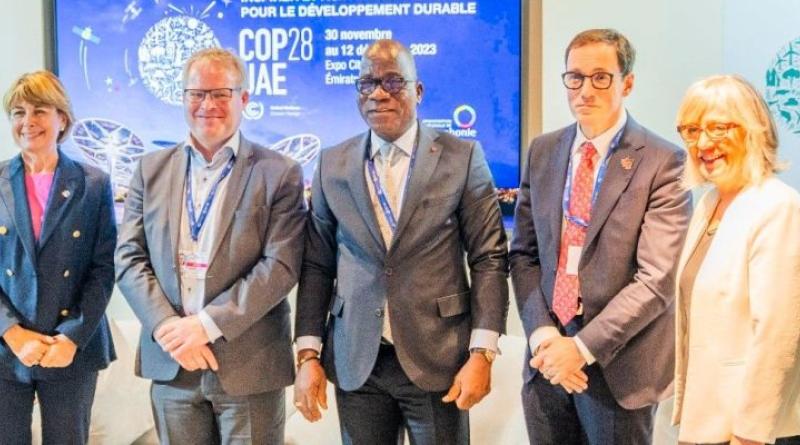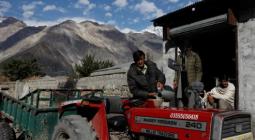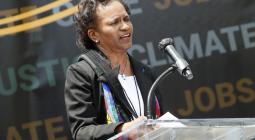COP28: “climate justice requires linguistic justice!” » OIF

On the sidelines of the 28th United Nations Climate Conference (COP28), the International Organization of the Francophonie (OIF) organized a “high-level” French-speaking ministerial consultation on December 9, 2023, at the Pavillon de la Francophonie in Dubai. on the issues surrounding the mobilization of climate finance. Placed under the theme “the French language at the service of increased access to climate finance”, this consultation enabled ministers and heads of delegation to identify solutions for a more important place for the French language in negotiations on climate change. climate and in the efforts of French-speaking developing countries in terms of access to climate finance.
French-speaking African countries are victims of a double injustice within climate negotiation bodies. In addition to being the continent most vulnerable to climate change despite a low contribution to global greenhouse gas emissions (less than 4%), these countries, which are found mainly in the Sahel region, are faced with a language barrier, in their national processes for mobilizing climate finance. The French language puts them at a disadvantage within climate negotiation bodies, largely dominated by the English language.
After establishing this observation, the participants in the “high-level” consultation of La Francophonie in Dubai, chaired by Caroline Saint-Hilaire, the administrator of the OIF, formulated several recommendations. “Climate justice requires linguistic justice! A strong message to our heads of state , but also to our ministers and representatives, so that when they speak in French and no longer in English, in the various climate negotiation bodies ” declared Caroline Saint- Hilaire, at the start of the summary she made at the end of the consultation.
The participants insisted on the need for a strategic Francophonie. This is about learning from each other and building solidarity between French-speaking states that succeed in mobilizing funding and those that do not. This solidarity must also extend to green project leaders, all aimed at achieving an acceptable rate of access, from French-speaking countries to climate finance.
Participants shared the proposal to initiate and strengthen high-level advocacy by French-speaking heads of state for easier access to climate finance, in the run-up to the next Paris summit on climate finance for developing countries.
On this momentum, Mamady Souare, the country director of the African Development Bank (AfDB) in the Central African Republic (CAR), underlined the importance of leadership. “ If you have institutions that are 90% dominated by English speakers, how can you expect these English speakers not to commit to campaigning for projects with which they have linguistic proximity? This is why it is important to advocate, so that French-speaking countries can submit projects in their language within institutions such as the Green Climate Fund (GCF), the Global Environment Facility (GEF). and elsewhere. » explained Mamady Souare.
Aware that climate finance constitutes a major issue for the full implementation of the Paris Climate Agreement, the Principality of Monaco, through the voice of Isabelle Berro-Amadeï, Government Advisor-Minister of External Relations and of Cooperation, welcomed the extension of its partnership with the Institute of the Francophonie for Sustainable Development (IFDD) with a view to supporting French-speaking stakeholders in their access to climate financing.






